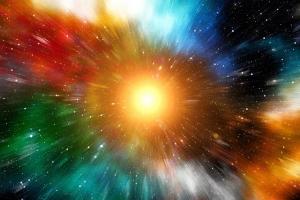Atheist and anti-theist Bob Seidensticker runs the influential Cross Examined blog. He asked me there, on 8-11-18: “I’ve got 1000+ posts here attacking your worldview. You just going to let that stand? Or could you present a helpful new perspective that I’ve ignored on one or two of those posts?” He added in June 2017 in a combox: “If I’ve misunderstood the Christian position or Christian arguments, point that out. Show me where I’ve mischaracterized them.” Delighted to oblige his wishes . . .
Bob (for the record) virtually begged and pleaded with me to dialogue with him in May 2018, via email. But by 10-3-18, following massive, childish name-calling attacks against me, encouraged by Bob on his blog, he banned me from commenting there. I also banned him for violation of my rules for discussion, but (unlike him) provided detailed reasons for why it was justified.
Bob’s cowardly hypocrisy knows no bounds. On 6-30-19, he was chiding someone for something very much like his own behavior: “Spoken like a true weasel trying to run away from a previous argument. You know, you could just say, ‘Let me retract my previous statement of X’ or something like that.” Yeah, Bob could! He still hasn’t yet uttered one peep in reply to — now — 74 of my critiques of his atrocious reasoning.
Bible-Basher Bob reiterated and rationalized his intellectual cowardice yet again on 12-21-20: “I love people who can make cogent arguments against mine or point out data I hadn’t considered before. What I dislike (and ban) are $#&*%@s who . . . refuse to learn/adapt . . . ignore compelling arguments against their position, and so on.”
Bible-Basher Bob’s words will be in blue. To find these posts, follow this link: “Seidensticker Folly #” or see all of them linked under his own section on my Atheism page.
Words of atheist Jonathan MS Pearce will be in green and atheist Geoff Benson‘s in brown.
*****
I am responding to a portion of Bob’s post entitled, 8 reasons why “God” is always the worst answer (11-4-21; update — like so many of Bob’s — of a post from 7-8-17).
For the answer to any of life’s big questions—questions such as “Why are we here?” or “What is the meaning of life?”—anything with God in it is always the worst guess. Super-smart aliens would be better. Fairies would be better. “I dunno, but there’s gotta be something better” would be better.
“God did it” is perhaps the most remarkable claim possible since it assumes, without compelling evidence, that a supernatural being created everything.
Let’s explore why God is the worst explanation for anything.
1. “God did it” is unfalsifiable. It explains too much.
“God did it” is the ready answer apologists can use to explain any scientific puzzle—what caused abiogenesis (the first life, which allowed evolution to begin), what caused the Big Bang, what explains consciousness, and so on. Of course, science keeps answering those puzzles, meaning that those applications of “God did it” were both wrong and premature, but apologists never seem to learn that lesson.
I can never prove that “God did it” is not the explanation for anything. What about a tsunami that kills hundreds of thousands of people, God’s hiddenness despite earnest prayers, or anything else within Christianity that confounds us? The Christian can always say that God might have his own reasons that we simply aren’t entitled to know or aren’t smart enough to understand. . . .
The problem is that “God did it” can never be falsified, which makes it useless. By explaining anything, it explains nothing.
I’ve been through this [non-]argument many times. It’s quite obvious that (naturalistic) science and (secular) philosophy and atheism offer no more compelling answers or solutions to the age-old question: “why is there something rather than nothing?” than Christianity or other religious faiths. I’ve already replied directly to Bob along these lines six times (and of course he never replies to any critique I write). and at least eight other times, generally speaking, as well:
Seidensticker Folly #14: Something Rather Than Nothing [9-3-18]
Seidensticker Folly #38: Eternal Universe vs. an Eternal God [4-16-20]
Seidensticker Folly #41: Argument from Design [8-25-20]
Seidensticker Folly #42: Creation “Ex Nihilo” [8-28-20]
Seidensticker Folly #71: Spirit-God “Magic”; 68% Dark Energy Isn’t? [2-2-21]
Seidensticker Folly #73: Philosophy & “Who Created God?” [7-12-21]
Exchanges with Atheists on Ultimate Origins [11-19-15]
Cause of the Big Bang: Atheist Geologist Challenged [4-21-17]
Atheists & Inherent “Omnipotent” Creative Qualities of Godless Matter [7-26-17]
Dialogue w Atheist on the Origin of the Universe [6-23-18]
Dialogue with an Atheist on “God of the Gaps” [6-24-18]
God the Designer?: Dialogue with an Atheist [8-27-20]
“Quantum Entanglement” & the “Upholding” Power of God [10-20-20]
Dialogue with an Agnostic: God as a “Properly Basic Belief” [10-5-15]
But let’s give it another crack. Bottom line: science and philosophy have not answered this key question, and most scientists and philosophers readily admit it. The closest they come is the Big Bang Theory (first developed by the Catholic priest-scientist Georges Lemaître). That’s all well and good, and most Christians and theists today readily agree, but the problem for them is the next obvious question” “what [or Who] caused the Big Bang?” Christians, of course, believes that God did, and we have various philosophical and religious arguments for believing in God’s existence. But the atheist has . . . well, usually nothing to say to this further basic question.
I have satirized (but at the same time seriously analyzed and critiqued) atheist cosmology in my article, Atheism: A Remarkably Strong, Impervious Faith in “Atomism” (8-19-15). Here is the heart and essence of my argument (minus the satirical elements):
Matter essentially “becomes god” in the atheist / materialist view; it has the inherent ability to do everything by itself: a power that Christians believe God caused, by putting these potentialities and actual characteristics into matter and natural laws, as their ultimate Creator and ongoing Preserver and Sustainer. . . .
The . . . materialist . . . thinks that trillions of [atoms] . . . can make absolutely everything in the universe occur, by their own power, possessed eternally either in full or (who knows how?) in inevitably unfolding potentiality. . . .
Trillions of . . . atoms can do absolutely everything that the Christian God can do, and for little or no reason that anyone can understand . . . [how they] came to possess such powers in the first place . . .
The above is what amounts to a logical reduction of the atheist “answer” to this fundamental question. Anyone can see that it requires at least as much pure faith as the Christian answer. Bob Seidensticker can sit there and mock Christianity by saying that “Fairies would be better” (than God as an explanation for existence and the Ultimate Questions) and that “God is the worst explanation for anything.” But then when we examine what he and atheists propose as an alternative, it inevitably boils down to the above scenario or something not far from it.
Much better, I think, is the transparent intellectual humility shown by another atheist “sparring partner” of mine: Jonathan MS Pearce (one who actually does reply to at least some of my critiques), in his article, “Why Is There Something Rather Than Nothing?” (11-5-21). He is honest and fair enough to state:
I readily admit that this is the one question that keeps me up at night, it is also just as pertinent and applicable if one believes in God as if one doesn’t. I don’t see this as a problem for atheists and not for theists, or vice versa, this is something to think about no matter what your worldview is. . . .
But can matter be just as brute a fact as God? And it is, perhaps, just inexplicable. . . .
Roy Sorenson, in the Stanford Encyclopedia of Philosophy, seems closest to the mark, in my humblest of opinions: . . .
If the explanation cannot begin with some entity, then it is hard to see how any explanation is feasible. Some philosophers conclude ‘Why is there something rather than nothing?’ is unanswerable. They think the question stumps us by imposing an impossible explanatory demand, namely, Deduce the existence of something without using any existential premises. Logicians should feel no more ashamed of their inability to perform this deduction than geometers should feel ashamed at being unable to square the circle.
He then cites philosopher Lloyd Strickland:
Or, then again, you could argue that there just should be a universe:
The most novel answer to Leibniz’s great question is to say that our universe exists because it should. The thinking here is that all possible universes have an innate tendency to exist, but that some have a greater tendency to exist than others. . . .
[T]he idea of a virtual struggle among possible universes has appealed to some modern philosophers, who have followed it to its logical conclusion and claimed that the possible universe with the greatest tendency to exist – which might be because it is the best, or because it contains some important feature such as the conditions that permit life to arise – will actually bring itself into existence.
According to this theory, our universe becomes actual not because God or anything else made it so but because it literally lifted itself out of non-existence and made itself actual. Weird? Yes. But we shouldn’t let that put us off. After all, an extraordinary philosophical question might just require an extraordinary answer. [my bolding]
It’s the ultimate head-scratcher, for sure.
It sure is, for the atheist. Again, I sincerely appreciate Jonathan’s intellectual humility and his refraining from mocking the Christian reply to this question. We readily observe in his presentation that atheism’s “answer” is not a whit more rational or unfalsifiable than the Christian one. We say God created the universe, and believe He exists on many independent religious and philosophical grounds. The atheist explanations of the existence of the universe, on the other hand, are (take your pick):
1) the remarkable inherent and eternal (?) qualities of initially non-living matter that they in effect place their limitless “faith” in, as agents of the creation of the universe.
2) “our universe exists because it should“. Now how is that assertion falsifiable or able to be rationally examined at all? How is it epistemologically superior to “God exists because He should and must” or even to the classic theistic ontological argument?
3) The universe “literally lifted itself out of non-existence and made itself actual.” This is what might be called the ‘lifting yourself up by your own bootstraps” approach. It makes no rational or logical sense whatsoever and is almost impossible to rationally accept or even to grasp at all.
There you have it folks. I challenge any atheist reading this to defend any of those three propositions as more plausible, believable, falsifiable, and rational than the traditional theistic explanations for the existence of the universe. I’d love to have that conversation. In fact, there are very few things I would find more fascinating to discuss with an atheist (or anyone else) than this.
**
Dave, your article does nothing, in my opinion, to alter the dynamic of the atheist position, which is one of ‘don’t know’. Reading your article you, quite rightly, point out that invoking God as a creator of all existence is little different to simply leaving God out of the discussion altogether. Ultimately, your case is that God must have done it because it’s too hard to imagine anything else. I might say that the proposition you mention
“According to this theory, our universe becomes actual not because God or anything else made it so but because it literally lifted itself out of non-existence and made itself actual.”
is not one I’ve previously seen, nor pay great heed to. I prefer the simplest view, that ‘nothing’ is an incoherent concept and that even asking the question (which admittedly I will continue to do) misses the point, that it’s impossible to have non-existence.
Ultimately, natural explanations for existence are likely to founder simply because the question doesn’t lend itself to being answered. Regardless, science and philosophy will keep hunting down the natural explanations because that’s all we can do. There are some pretty wild theories out there that may never be testable, and hence unfalsifiable, but these can often lead to ideas in other areas that give very tangible results. The insertion of God into the equation doesn’t help move things forward in any way.
Thanks for your comment (non-insulting as always: a rare thing around here to be sure!).
There are over fifty philosophical theistic arguments. How many philosophical arguments are there that defend the notion of “the universe exists because it should” or “the universe lifted itself out of non-existence and made itself actual”?
Those two positions are absolutely irrational, are immediately perceived as such, can scarcely be developed or expanded upon at all (let alone falsified), have nothing to do with either science or philosophy, and require the most extraordinary blind faith. Theism is quite different from this nonsense, because it has such a rich philosophical history of thought behind it, including scores and scores of the greatest philosophers and scientists who ever lived.
God is “inserted” into the equation because that makes the most sense of any of the “explanations.” I would submit that it is the only explanation that exists since “the universe lifted itself out of non-existence” and suchlike are not explanations at all. They are simply proclamations of fairy tales that have no substantiation whatsoever and only exist at all because atheists are so desperate to explain a universe without God.
It’s best to simply say you have no idea, as you have essentially done. Theists do have an idea, and we have many philosophical and scientific arguments for why we think an immaterial God is the initial Cause and Creator of this universe. We prefer to keep thinking and speculating about origins (both scientifically and philosophically, as well as theologically), rather than yield the question up to nonsensical absurdities and fairy tales.
***













